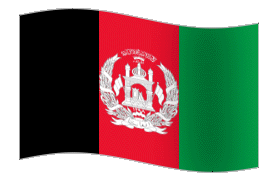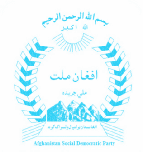Challenges Galore for New Afghan Order
Ajmal Shams
Gulf News (12-
The national unity government (NUG) in Afghanistan has been in power since early
last month after months of wrangling over election dispute. So far, public reaction
has been overwhelmingly positive especially due to a proactive governance style of
President Ashraf Ghani. From fight against corruption to building institutions and
reaching out to a wide spectrum of Afghan society, Ghani has already embarked upon
taking the initial steps to deliver on his campaign promises. In doing so, he has
begun to win hearts and minds, which is essential for consolidating his hard-
What seemed like a looming crisis, the election deadlock was amicably resolved by a deal brokered by the US with active involvement of the UN. Yet, one cannot underestimate the role of former President Karzai either. He was instrumental in making both Ghani and Abdullah agree on the political framework that could accommodate both the rivals in a national unity government. In an institutionalized and functional democracy, election has to have a clear winner and a loser. Yet, in Afghanistan context, victory did not mean the winner takes all. Ghani was the winner, as later confirmed by the independent election commission, but had to choose between an imminent crisis and a power sharing arrangement with his rival Abdullah. It must have been a difficult decision for Ghani, but in retrospect the deal seems to have served the national interests, although to the dismay of his supporters. Eventually, a ‘happy ending’ to the election drama; and the credit goes to Karzai, Ghani and Abdullah.
With Ghani as President and Abdullah as Chief Executive, the new government in Kabul has initiated an ambitious agenda of change and reform. Difficult as it might seem, with strong political will from both partners in the NUG, there is no reason that success may not be achieved as Afghanistan has never been so prepared to embrace change as now.
Immediately after taking oath of office, Ghani issued a decree making all the sitting ministers as acting till appointment of new ones. The most daunting task ahead for both Ghani and Abdullah is formation of the new cabinet in which they have almost equal share. Striking a balance between political heavyweights and technocrats will be the most challenging part of the government formation. It is feared that many of those who might be politically powerful and might have widely campaigned in both camps may lack the necessary competence. Yet, good governance will require a capable and committed team. All signs are that the new administration is poised to be a mix of politicians, technocrats and power brokers. By the end of the day, both Ghani and Abdullah are accountable to the Afghan people and not to those who contributed to their campaign efforts. Let this message be loud and clear to the NUG.
Despite all concerns, indications suggest the new government in Kabul means business.
True to his promise, Ghani managed to sign the long-
In spite of all the optimism, inherent bottlenecks do seem to exist because of the way the NUG is structured. It certainly suffers from a multiplicity of reporting lines and the ambiguity therein. Having a president with two vice presidents together with a Chief Executive and his two deputies might complicate the functioning of the government and might potentially lead to difficulties in future once problems arise due to policy differences in the two camps that have now joined hands to work together.
The new government in Afghanistan has a bumpy road ahead. The most daunting task
for Ghani and Abdullah is to bring peace to the country. As for Ghani, he seems to
be pushing through his agenda of regional economic integration as driving force for
Afghanistan and its neighbors to genuinely collaborate in bringing peace to the region.
Ghani wants to re-
With the new government in place, Afghanistan has a golden opportunity to rebuild the state and the nation.
(Courtesy: Gulf News -
The writer is President of the Afghanistan Social Democratic Party better known as Afghan Millat National Progressive Party and is based in Kabul, Afghanistan. He served as Policy Advisor to President Dr. Ashraf Ghani when he chaired the security transition commission. He mainly writes on political and developmental issues. He has published in the News International, the Gulf News, the Asia times, South Asia Magazine and several other national and international journals.
Copyright © Afghan Millat 2007-
دافغان ملت ملي مترقي ګوند

Afghanistan Social Democratic Party
